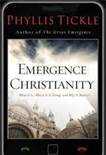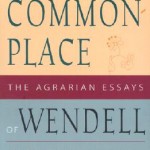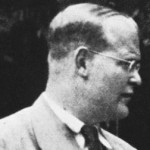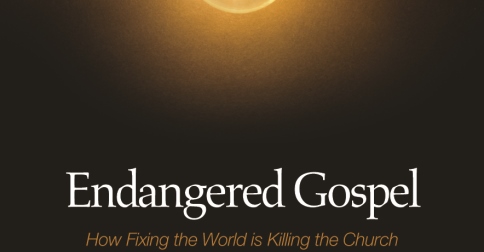 I have been at the Emergence Christianity gathering in Memphis for the last day and a half. The focus of this conference is celebrating the life and work of Phyllis Tickle. It’s been delightful to hear Phyllis speak, after praying the Divine Hours for over a decade and reading many of her other books.
I have been at the Emergence Christianity gathering in Memphis for the last day and a half. The focus of this conference is celebrating the life and work of Phyllis Tickle. It’s been delightful to hear Phyllis speak, after praying the Divine Hours for over a decade and reading many of her other books.
Phyllis gave two lengthy talks — both astoundingly without any notes at all! — that gave shape to a historical narrative for emergence Christianity. The basic thrust of this history was that there have been major cultural upheavals every 500 years, which coincided with major transitions in Christian history, and that we are in one of the these periods of transitions today. This narrative is compelling and provides a meaningful explanation for the genesis of emergence Christianity today.
The one part, however, of this story that struck me as peculiar was Phyllis’ insistence that “the age of the Spirit” began in 1906 with the Azusa Street revivals. I certainly agree with Phyllis that this Pentecostal movement is essential to the history of Emergence Christianity, what perplexes me though is her insistence that this was the dawning of Pentecostalism and the onset of the age of the Spirit. It seems to me that there have movements of Pentecostal renewal throughout the history of the church, movements that were energized particuarly by the stories the Jerusalem church at Pentecost. John Howard Yoder (and other Anabaptist scholars) have traced this history through early monastic including the desert mothers and fathers, St. Benedict, the Waldensians (and other Christian groups outside of Roman Catholicism in the late Medieval era), the Anabaptists, the Quakers (as one conference participant noted on Twitter), etc, etc. It seems that the history of intentionally Pentecostal movements goes all the way back to … well… Pentecost. Maybe literally speaking in tongues was a distinctive of the modern Pentecostal movement — but as some scholars have notes (drawing a blank here? Brueggemann maybe??) the speaking of tongues at Pentecost was a reversal of the curse of Babel, a breaking down of the linguistic and cultural barriers that divide humanity. All the movements named above have embodied in their own ways this Pentecostal spirit of living out the freedom of a life where Christ has torn down the veils that divide humanity.
I love the work that Phyllis is doing and it is very meaningful for emergence Christianity, but I think it fails to convey the complexity, particuarly of the Church’s history at least in the way that I describe above and perhaps in other ways as well.
So, my question for other conference participants — or others who have read her newest book Emergence Christianity — am I off-base here? Are there points at which Phyllis’ narrative is too simplistic? And does it matter for the work she is trying to do?












